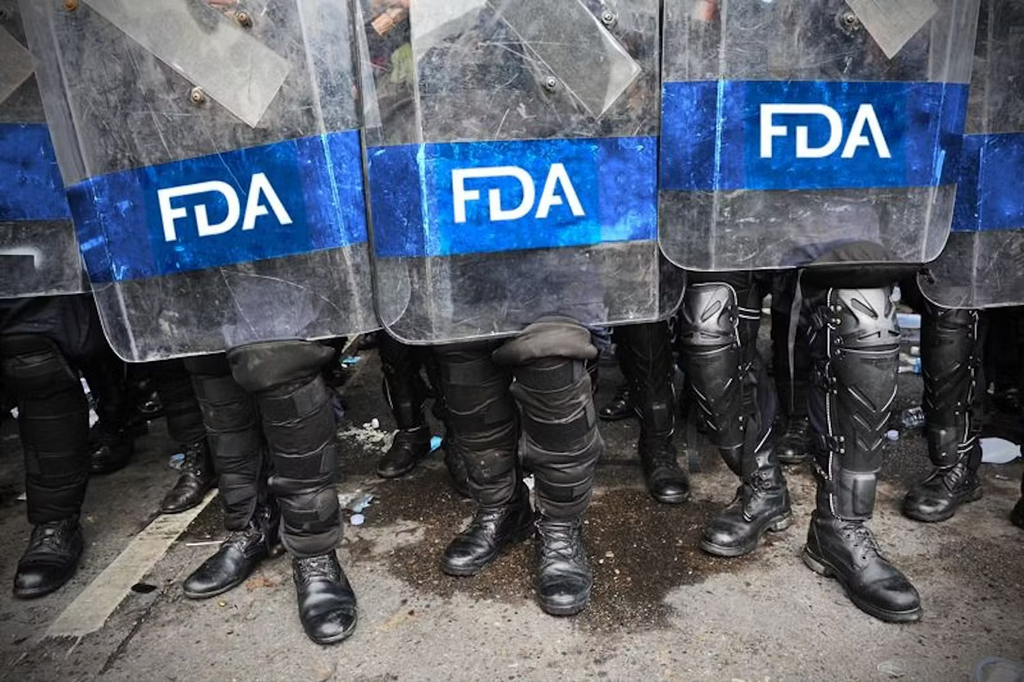
The U.S. Marshals Service, acting on behalf of the FDA and Department of Justice, has seized more than 45,000 “unauthorized e-cigarettes” from a warehouse in Alhambra, California. The FDA estimates the seized products are worth about $703,000.
Although the FDA has teamed up with the Department of Justice (DOJ) before, this marks the first time the DOJ has employed the Marshals Service to aid in seizing vaping (or tobacco) products, according to an FDA press release. It's unclear why armed law enforcement officers were necessary to seize vaping products.
“FDA has been unequivocally clear that we are committed to using the full scope of our enforcement tools—including seizures—to hold those who peddle unauthorized e-cigarettes accountable,” said FDA Center for Tobacco Products (CTP) Director Brian King.
FDA targets “youth-appealing brands”
The date of the seizure is unknown, although the action came after April 5, when the U.S. Attorney’s Office in Los Angeles filed a civil forfeiture complaint in the Central California U.S. District Court on behalf of the FDA.
The FDA action originally targeted vape distributor the MDM Group (doing business as Eliquidstop.com), but during the raid “the agencies were informed that several firms may have an ownership interest” in the seized products. The FDA has not named the other companies who had a stake in the seized products.
The number of seized products was relatively small, at least compared to the last FDA seizure the agency announced publicly. In that action, FDA and U.S. Customs and Border Protection employees seized 1.4 million vape devices at Los Angeles International Airport—more than 30 times as many as the Alhambra raid produced.
The FDA says the products seized at the California warehouse were mostly disposable vapes, including “youth-appealing brands such as Puff Bar/Puff, Elf Bar/EB Design, Esco Bar, Kuz, Smok, and Pixi.”
FDA’s whack-a-mole war on vapes shifts into high gear
The FDA has authorized just seven e-liquid-based vaping devices (six remain on the market)—all available only in tobacco flavors, and none popular among the millions of American adults who use e-cigarettes. All FDA-authorized vaping products are made by major tobacco companies. The agency has rejected millions of premarket tobacco applications (PMTAs), forcing many companies out of business, and pushing others to appeal FDA marketing denial orders (MDOs) in federal court. The FDA has not authorized any bottled e-liquid or any product in a non-tobacco flavor, and has authorized no new vaping products since Brian King was appointed CTP director nearly two years ago.
Since Vaping360 last covered an FDA vape enforcement action (civil money penalties assessed to 21 retailers in late January), the agency has announced three rounds of warning letters (80 total), and civil money penalties for 22 more retailers—all actions against sellers of disposable vapes.
Since the FDA began enforcing against vaping manufacturers and sellers, the agency says it has issued about 1,220 warning letters, and filed more than 150 civil money penalty complaints. It has also sought permanent injunctions to shut down six tiny vape businesses in 2022 and another one last year.
The agency shifted its whack-a-mole war against disposables into high gear last year, and has gotten help from tobacco giants R.J. Reynolds and Altria Group, which have carried on their own campaigns to wipe out disposable vapes and independent vape manufacturers and pass state PMTA registry laws that ban the competition’s products. The cigarette companies have lost ground in recent years and blame growing retail competition from “unauthorized” disposable vapes.
